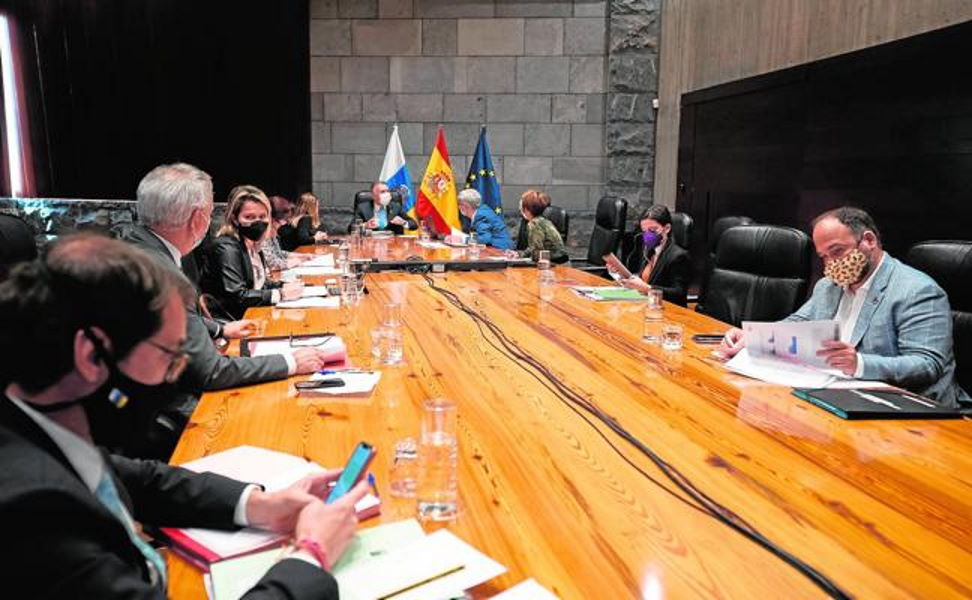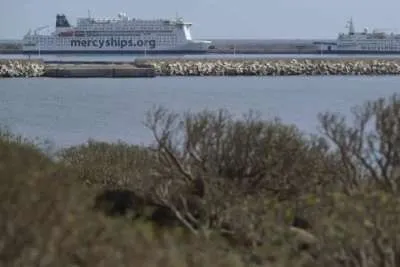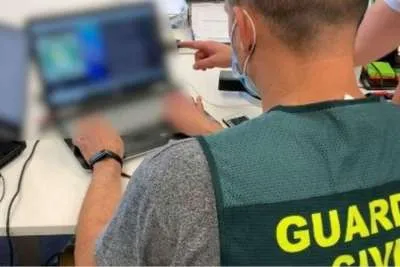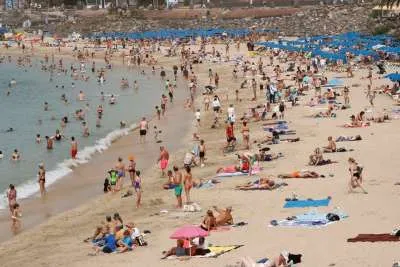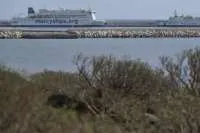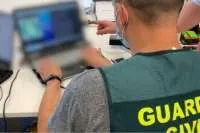The Governing Council will review alert levels for the islands this afternoon
- 08-07-2021
- National
- Canarian Weekly
The island of Gran Canaria is exposed to having the alert level for the island raised to Level 2 for coronavirus after the latest data on the incidence of the virus shows a sharp rise in infections, and it is not ruled out that the Canary Islands Government adopt this and other measures in the course of the meeting of the Governing Council that will take place later today, Thursday.
As is known, Gran Canaria has multiplied the incidence of the virus in the last week or so 130 new cases yesterday and 819 active cases. The situation is much worse in Tenerife as there were 187 new cases yesterday and 3,139 actives on the island, while other islands such as Fuerteventura have also experienced a notable increase in infections in recent weeks.
The Accumulated Incidence rate over 7 days in the Canaries stands at 105.7 cases per 100,000 inhabitants and over 14 days at 170.96 cases per 100,000 inhabitants. In this way, the Canary Islands have reached their highest incidence of infections over seven days since the start of the pandemic.
As a whole, the Canary Islands have a seven-day incidence of EXTREME risk in the following age groups:
15 to 19 years: 306.07
20 to 29 years: 234.86
30 to 39 years: 139.8
And at HIGH risk in the following:
0 to 4 years: 91.44
5 to 9 years: 94.76
10 to 14 years: 87.46
40 to 49 years: 81.32
Tenerife is, by far, the most affected by the rise in infections: its seven-day incidence rate is at the highest risk in its entire population from 0 to 49 years old. The IA7 reaches 347 in the case of the 20 to 29 age group, which is the one with the most infections in all the islands.
POSSIBLE CHANGES IN LEVELS:
This morning the President of the Government, Ángel Víctor Torres, made statements to the media before participating in the conference 'European Funds: Time for Action' in Madrid, saying that “This Thursday we will have a Governing Council meeting of the Canary Islands and we will analyze within the tools that we have the options to try to stop this increase in infections and bend the curve," he explained.
For Torres, the young population is "key" at the moment to reduce coronavirus cases, because it is the age group with the highest cumulative incidence since once the school year concluded, young people are enjoying their vacations and what is happening now is the same that happened during the summer of last year, the carnival or Easter, which is that the accumulated incidence rate increased.
“Fortunately we have the vaccine and we need to increase vaccination at the highest possible rate according to the supplies we have and appeal for maximum vigilance, and compliance with restrictions and individual and collective responsibility until we reach the target population.”
In the same way, he reminded that young people can also get ill, enter hospitals, and therefore, can die from Covid. In fact, between April and June, three people under 40 years old died with coronavirus and about fifty had to be admitted to hospitals on the islands, with 12 of them being admitted to ICU.
The president pointed out that the increase in incidence is also reflected in the economy, so that despite the fact that there is a digital green certificate, countries can recommend that their citizens not travel to places at high risk, which currently includes the Canaries.
Other articles that may interest you...
Trending
Most Read Articles
Featured Videos
TributoFest: Michael Buble promo 14.02.2026
- 30-01-2026
TEAs 2025 Highlights
- 17-11-2025


